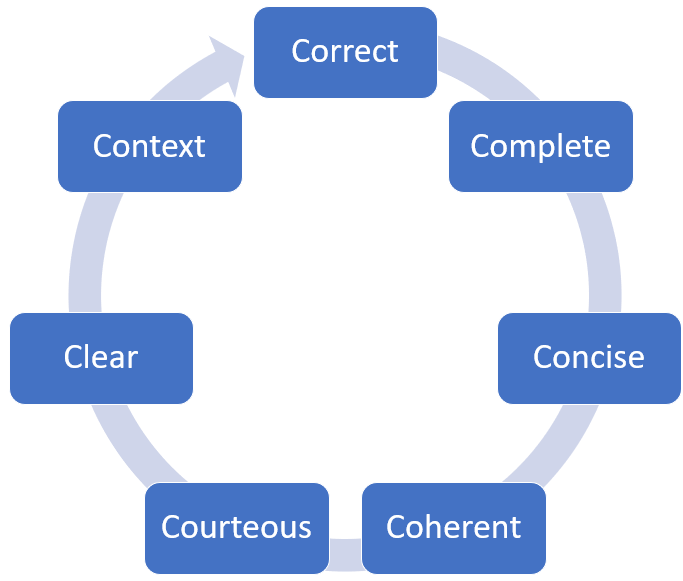We spend all day, every day communicating in one way or another, whether that's writing emails, attending team meetings, participating in a video call, answering a telephone query, delivering lessons or having a conversation with a colleague, pupil or parent (the list could go on forever!).
How do we make sure that our communication is effective?
You could use the 7Cs of communication as a checklist to reflect on your communications and make sure that your audience receives your message in the way that you would like them to.

When your communication is correct your audience will be able to understand it. You can make sure that your message is correct by asking yourself:
The person that you are communicating with should have everything they need to be fully informed and take action.
Make sure that the person receiving your message knows what is expected of them.
If your message is coherent it will make sense!
All points should be connected and link to the main topic.
Think about the tone and the flow of the text too.
Be friendly, open and honest.
Keep the other person's viewpoint in mind and make sure that you use empathy to understand their needs.
Be clear about your message and know what the purpose of the communication is.
If you're not sure what the purpose of the communication is then the person that you're communicating with might not be either!
Don't assume that people will know what you mean, they can't read your mind!
Consider who your audience is at all times, and where they are!
For example an email to a friend will be more informal than if you are communicating with a colleague, parent or pupil.
Reflective Questions

Notifications